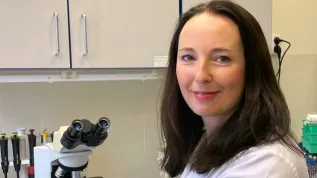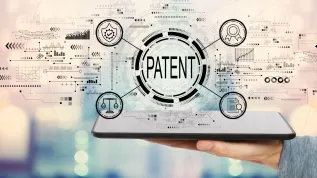
Companies will benefit from higher tax deductions for research and development, and researchers will profit more from the commercialisation of their inventions - these are the expected results of the so-called small law of innovation, which the Sejm unanimously passed on Thursday.
The government draft amendment of certain laws defining the conditions for conducting innovative activity, prepared by the Ministry of Science, introduces a system of bonuses and incentives to encourage innovative activity.
434 deputies unanimously voted for the enactment of the law.
The bill did not raise major controversies. During the parliamentary debate on the draft, representatives of all parliamentary groups reacted positively to the draft and announced their support.
Deputy Prime Minister, Minister of Science and Higher Education Jarosław Gowin, thanking all parliamentary groups for substantive work on the bill last Thursday before the vote in the Sejm, announced further changes concerning innovation. "Work on the so-called large innovative law is near completion, we want the new law to come into force on January 1, 2018" - he said. He added that the book of barriers to innovation is now being prepared. He mentioned that these barriers are legislative, organizational, and cultural. "The main barrier named by entrepreneurs is the lack of trust capital" - he emphasised.
The Sejm rejected in the vote two amendments to the bill proposed by Włodzimierz Nykiel (PO). One of them clarified the rules in a situation in which a company discontinues business activity shortly after receiving funds for research and development. The second amendment concerned the facilitation of obtaining short-term access to testing equipment for scientific purposes. Parliamentary committees recommended passing the second of these amendments.
Parliamentary committees made other substantive corrections to the draft amendment. One of them removes provisions stating that the tax relief for research and development is permitted public aid. Another concerns the subsidies granted to scientific institutions for maintaining research potential. Institutions will have to spend 2 percent of these funds on financing activities related to the commercialisation of research results and development activities; the original proposed amount was 0.5 percent. Yet another correction provides for the possibility to support Polish environmental technologies (home and abroad) by the National Fund for Environmental Protection and Water Management. This is related to the implementation of audit recommendations of the Supreme Audit Office.
The law on amendments to certain laws defining the conditions for conducting innovative activity abolishes from 1 January 2017 the income tax on intellectual property contributed to the company.
The new regulations also provide for a tax deduction of the cost of obtaining a patent by small and medium-sized enterprises.
The law also increases the amount of tax-deductible eligible costs of expenditure on research and development. For micro, small and medium-sized companies these deductions would amount to 50 percent. Large companies could deduct 50 percent personnel costs and 30 percent other costs related to research and development activities. Moreover, the project extends the period in which companies may deduct the costs incurred for research and development from three to six years.
The bill also removes the limitation of the period during which scientists are entitled to share in the profits from commercialisation (currently a maximum of five years after the first funds are obtained). New regulations also modify the procedure for "enfranchisement of scientists" - according to justification of the bill, the new provision is intended to reduce unnecessary bureaucracy.
The new provisions would take effect after 30 days from the date of publication in the Journal of Laws, with the exception of tax laws and the provisions concerning the financing of science, which would apply from 1 January 2017.
The law will now go to the Senate.
PAP - Science and Scholarship in Poland
lt/ agt/ mrt/
tr. RL













